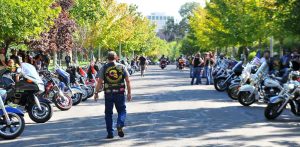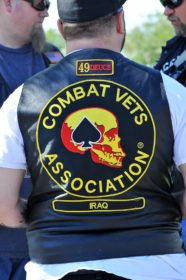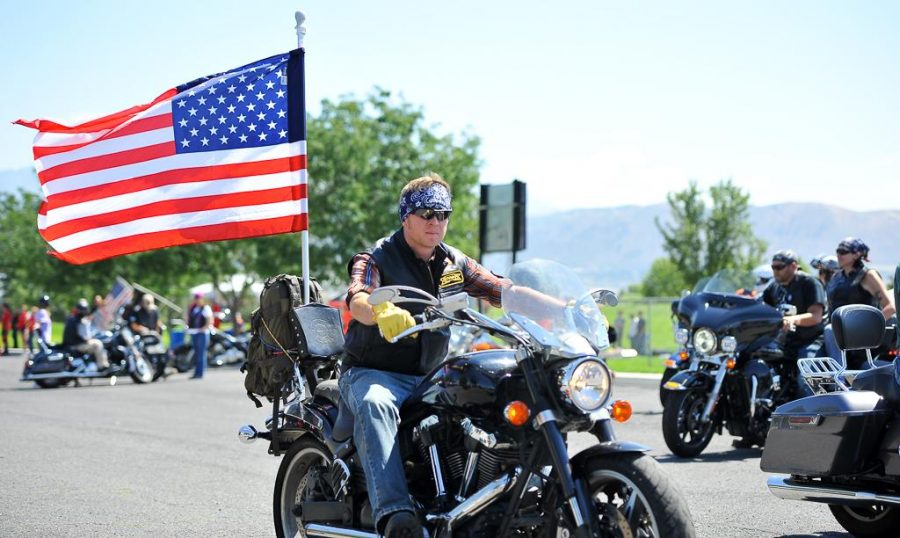Freedom sometimes comes with a cost. The cost of veteran suicides, however, is far too high. The lives of our military men and women after they have left service is a price that we can no longer afford to pay.
It is estimated that more than 8,000 veteran suicides occur every year.
That is more than 140 a week, or 20 every day.
The Ride to Zero, held on Saturday, Aug. 27, is aimed at getting the number of veteran suicides to zero.

More than 300 motorcycle riders went on a 70- mile ride from Centennial park in Riverton to Memory Grove in downtown Salt Lake City. The Combat Veterans Motorcycle Association (CVMA), which hosts the event, and the U’s National Center for Veteran’s Studies (NCVS) have teamed up to raise funds for researching veteran suicide. These funds go directly to research aimed at understanding the motivations behind veteran suicides and at reducing the total number of suicides.
The Salt Lake City CVMA Chapter Commander, John Oldroyd said, “As veterans, we can’t just stand by and watch our brothers and sisters kill themselves, and we are in a position to do something about it, so we’re going to help out.”
The U has around 900 veterans within both the student body, and staff and many others who have family military ties. Veterans at the U are indelible, offering a unique view and a myriad of life experiences.

The Veteran Research Center is located in the basement of the old law school, building 72, affectionately called “the bunker” by the staff. The center offers free services to veterans such as counseling and mental-health assessments. More than that, the NCVS is available for any veteran in need of anything, “Stop by anytime” said executive director Craig Bryan.
While the donation of funds from this event is invaluable, another way for students (and veterans in particular) to get involved and aid this research is to come in and volunteer.
“Your willingness to volunteer and participate in the research is what enables us to find the answers” said Bryan. The NCVS is the leading institute for research and treatment for veteran suicides. NCVS research manager Anastasia Najarian said, “It is amazing the amount of research that is coming out of the university, especially to serve veterans.”
Freedom isn’t free, but veteran suicides should not have to be part of that cost. Such is the aim of the NCVS and the CVMA as they come together on this yearly event. Ryan Fleischman, executive officer of the Salt Lake City Chapter of the CVMA, said, “They shouldn’t have to resort to that, they shouldn’t have to feel like this is their only option.”


